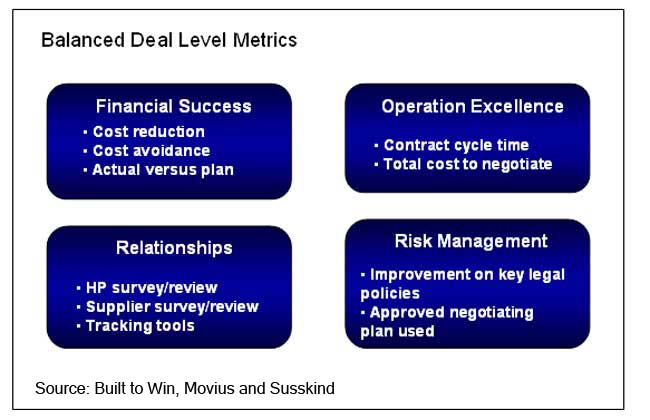“We commonly find that organizations have no systemic approach to learning from their negotiations experience,” Movius and Susskind write.
Large companies write thousands of contracts per year, but generally don’t really track, for example: what types of agreements are best for solving what types of problems; why certain options or strategies work best where, how technical and legal language actually played out; what types of agreements turn out to be better or worse for the organization, etc.
The book suggests a 9-step process for developing such an institutional competence in negotiations. Those nine steps are collected into three major phases:
- Assessment: Determining where you are, identifying sponsors and champions for this new approach
- Creation: Building a culture of learning and a common model and language
- Sustainment: Measuring and evaluating the results while attacking persistent barriers
The above description is a greatly simplified summary – the book primarily serves to lay out each of these phases and steps in detail.
One of the fundamental principles is that companies must formally create processes for how the front-line negotiator (e.g., a procurement manager) interacts with and communicates to the many other stakeholders impacted by the negotiations. While the role of the “back tables” in the negotiation process and ultimate success of the program are well understood, nevertheless, the authors say, in most companies, there is no formal approach for how this interplay between negotiator and others in the company is supposed to work.
“The boundaries between roles and responsibilities are vague and unclear, decisions have not been agreed, and process is not clear,” they write. Often, there is not even any clear process for basic steps, such as how a procurement manager is supposed to gather requirements and concerns from engineering, manufacturing, marketing, etc., when pursuing negotiations (as just one example).
HP Makes Improvements
HP is one of several companies which the authors use as examples for how different enterprises have used these principles to develop negotiating skills as a corporate competence.
For example, while HP is well known for its procurement excellence, nevertheless, the authors say its procurement metrics not long ago were almost entirely focused on cost savings, not on other metrics and measures important to the business.
“Because of the misalignment between procurement’s incentives and the interests of the organization as a whole, business leaders sometimes lost their preferred suppliers and didn’t understand why,” Movius and Susskind write. They also found that HP had a very linear procurement process that didn’t involve multiple stakeholders early and often enough.
In the end, HP decided to focus on “value” and “success” instead of just cost in its negotiations and contracts, using a framework similar to that shown below.

Of course, this type of approach could be viewed as simply good procurement practice, and that’s true. But Movius and Susskind do a good job weaving a series of practices like this into a strong framework for building strength in negotiations.
In the end, they make a compelling case that, especially in today’s world, companies must change their view that negotiating prowess is something that resides almost exclusively in the individual, but instead is something the enterprise itself can develop, and that most are missing the opportunity to learn from their experiences.
Do you agree that negotiating skill should be viewed as something that the company itself can build, rather than individual managers? Has your company taken that approach? What are the challenges and opportunities? Let us know you thoughts at the Feedback button below.
|